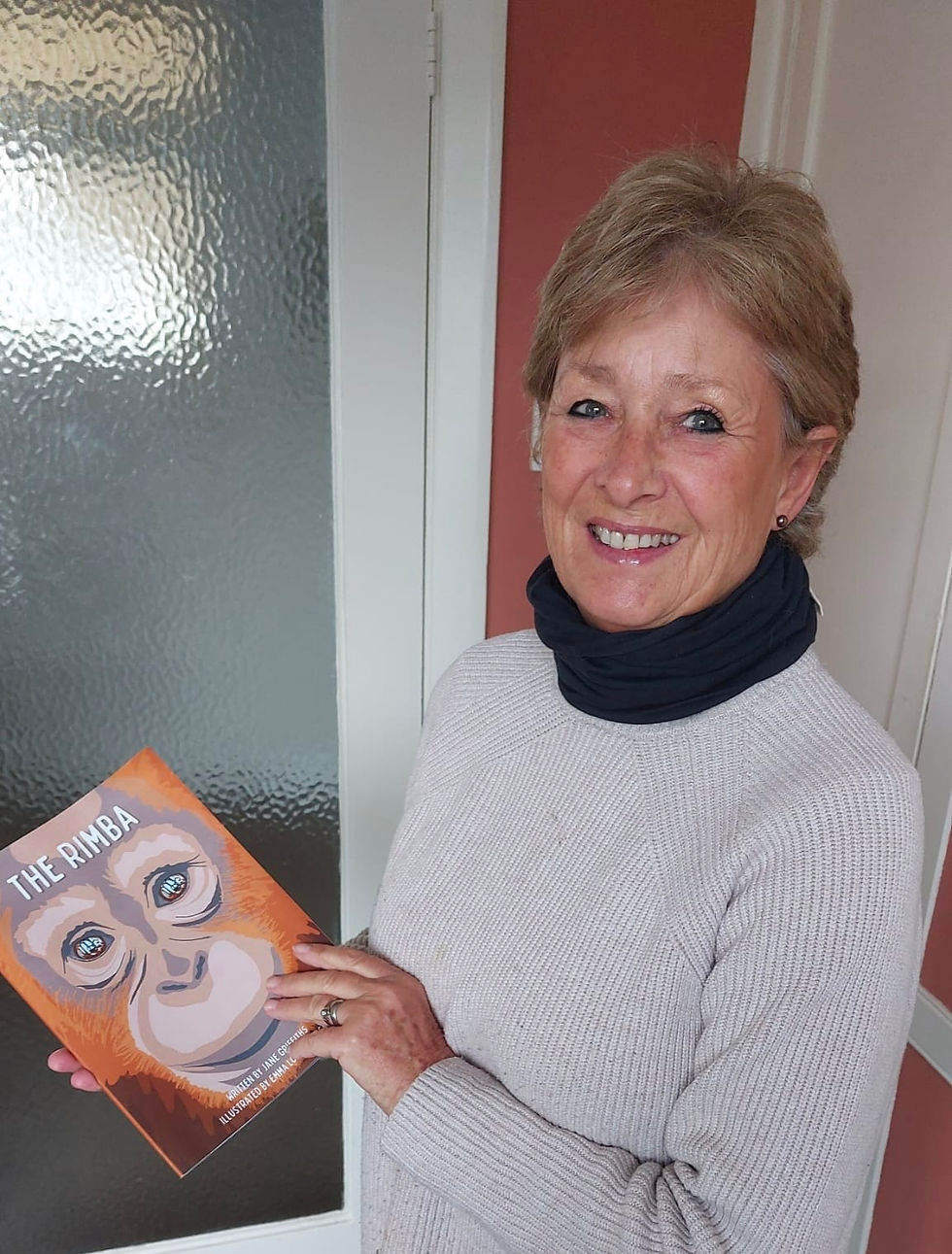Where it all started...
- Jenny Taylor
- Apr 22, 2024
- 3 min read
Updated: Apr 25, 2024
In celebration of our new website Michelle Desilets shares more about how The Orangutan Trust started...
My journey in orangutan conservation began in 1994 when I came across an emaciated little orangutan, stuck in a cage behind a rangers hut whilst on a study trip in Borneo. You might be surprised to know that my first love was actually the mountain gorilla, and it wasn’t until I met and cared for the baby orangutan, Somalia, that I decided to devote my life to them.
In 1997, Lone Droscher Nielsen and I decided we wanted to create an orangutan rehabilitation centre in Central Kalimantan for the illegally-held orangutans that needed rescuing in the area. Two years later, in 1999, with the help of the Borneo Orangutan Survival Foundation, the Nyaru Menteng Orangutan Project was opened.
The centre provided a safe home for the rehabilitation of rescued orangutans and over the years we went from caring for 600 to over 800 orangutans. From 2003 onwards, we saw a change in what was threatening the orangutan populations of Borneo. We were seeing the beginning of the palm oil boom and vast amounts of forest were being cleared to make way for new palm oil plantations. We were seeing that orangutans were ending up starving due to their habitats being reduced in size to make way for plantations. Unfortunately orangutans would then end up wandering into the plantations looking for food and they would damage and eat the young palm oil trees. This led to them either being beaten or killed by the plantation owners so the production of palm oil wouldn’t be affected. We were finding there was less and less secure forest left to be able to release the rehabilitated orangutans from the Nyaru Menteng centre.


Seeing this huge shift, I realised I needed to change the way I was working and start to look at palm oil and it’s sustainability practices. The creation of the Orangutan Land Trust in 2009 marked a significant turning point, allowing me to work on securing safe forest areas for orangutans and advocating for sustainable palm oil practices.
We now have an amazing team of some of best minds working in orangutan and forest conservation and are backed by a Scientific Advisory Board. This helps us being able to consider where the greatest needs and best possible outcomes can be found, backed by sound science.
Since 2009 I have been deeply involved in efforts to make the palm oil industry more sustainable, including being involved with the Roundtable on Sustainable Palm Oil (RSPO) and the Palm Oil Innovation Group. These initiatives aim to transform the industry, encouraging responsible practices that protect orangutans and their habitats.
At the Orangutan Land Trust, we aim to balance development with conservation, ensuring that economic growth does not come at the expense of our planet's biodiversity. Our work is to bring awareness to everyone to support sustainable practices, whether you're a consumer in the supermarket or a business committing to responsible supply chains.

The majority of my work now involves protecting the remaining habitats. This requires spending countless hours in meetings and negotiations, persuading stakeholders in the palm oil industry to adopt sustainable practices. Despite the challenges, I remain optimistic about the survival of orangutans and their habitats.
The increasing global awareness and demand for deforestation-free products alongside the development of deforestation-free legislations are helping to protect the habitats of not only the orangutan, but hundreds of important creatures that live in the forests of Borneo.
If you would like to help, you can make a difference to orangutans and the safety of their habitats by donating to us here.
We support conservation activities on the ground which protect the orangutan and its rainforest habitat, including restoring peatland and planting trees, creating wildlife corridors, preventing and fighting fires, empowering communities and educating people, and orangutan rescue and translocations.







Comments